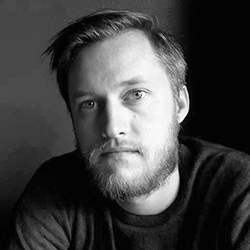Universitetsavisen
Nørregade 10
1165 København K
Tlf: 21 17 95 65 (man-fre kl. 9-15)
E-mail: uni-avis@adm.ku.dk
Foredrag
Foredrag — At this DIKU Bits lecture Robin Kaarsgaard will give an introduction to reversible programming and compositional semantics, and discuss how compositionality can be used as a guiding principle to design reversible programming languages.
Date & Time:
Place:
Lille UP1, Universitetsparken 1, 2100 København Ø
Hosted by:
DIKU
Cost:
Free
Robin Kaarsgaard, Postdoc in the Programming Languages and Theory of Computing Section (PLTC).
Reversible computing is the study of computations exhibiting the property that every computation step performed during execution can be undone. While this may seem like a strange class of computation models to study, reversible computing has seen applications in a diverse array of fields, such as low-power computing, quantum computing, and even robotics. Reversible programming languages, then, are programming languages which guarantee that its programs satisfy this property of reversibility.
Compositionality (as applied to programming languages) is a principle from program semantics, stating that the meaning of a complex program must be given entirely by the meaning of its constituent subprograms and the way that these subprograms are combined. In particular, programming languages with compositional semantics are often easier to reason about, and prove properties of, than those without.
This talk gives a brief introduction to reversible programming and compositional semantics, and discusses how compositionality can be used as a guiding principle to design reversible programming languages.
The talk will be conducted in English
Which courses do you teach? (BSc and MSc)
I currently teach the course Logic in Computer Science. While it is primarily intended for BSc students, it is open to MSc students as well.
Which technology/research/projects/startup are you excited to see the evolution of?
Quantum computing has huge potential applications, and though we are still far from realizing that potential, I am cautiously excited. I’m particularly interested in the development of a quantum Von Neumann computer architecture (preferably with quantum control) as well as the programming languages one would use to program such a machine. Did I mention that quantum computers are also reversible?
What is your favorite sketch from the DIKUrevy?
Probably “Udflytningen”: Torben Mogensen in the role of the “Department Leader”, complete with questionable facial hair, is hard to top. I also really enjoyed “Kan det fusioneres?”, in which (a student wearing a mask depicting) John Renner Hansen performs all sorts of experiments with fusion.
